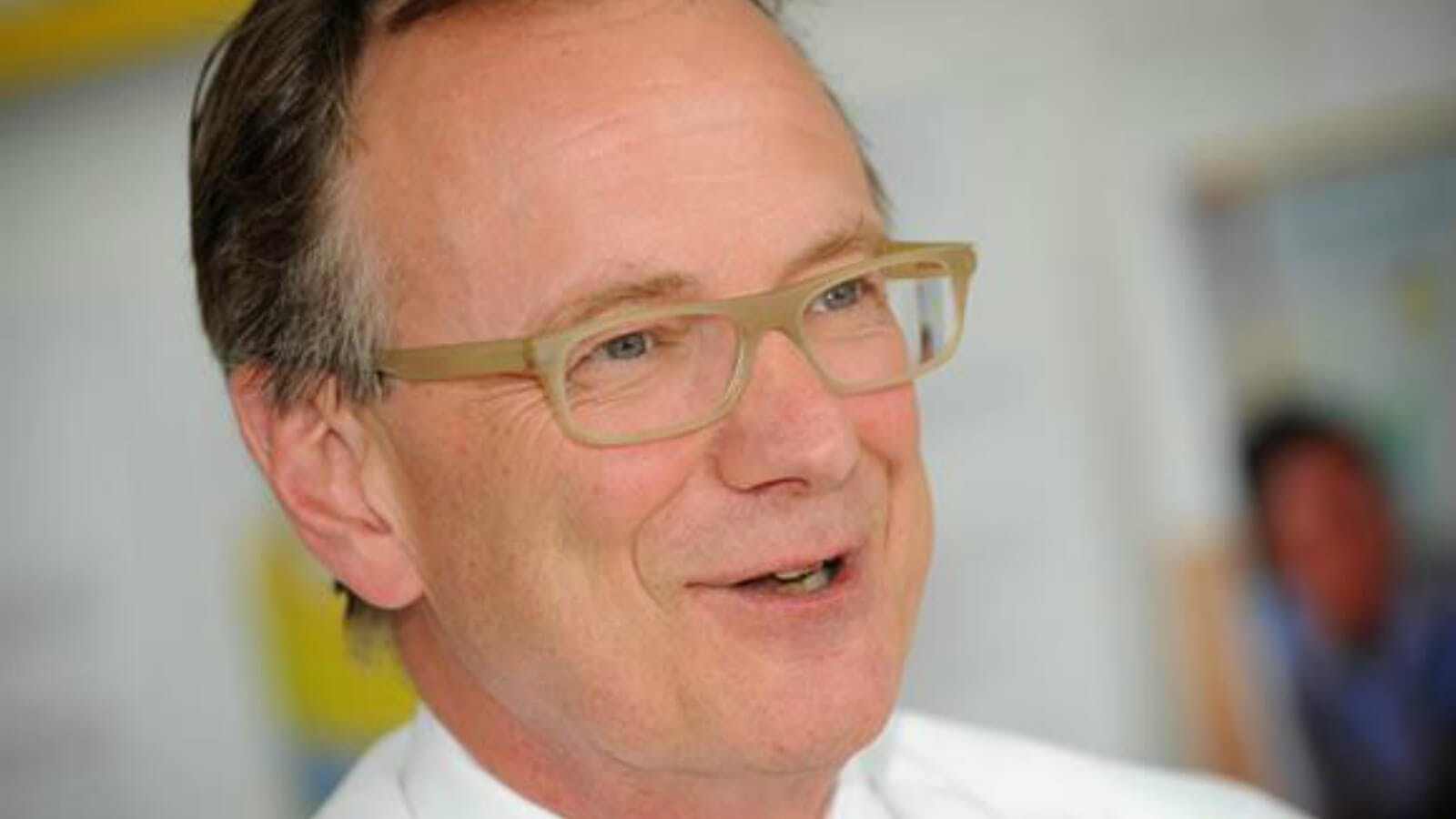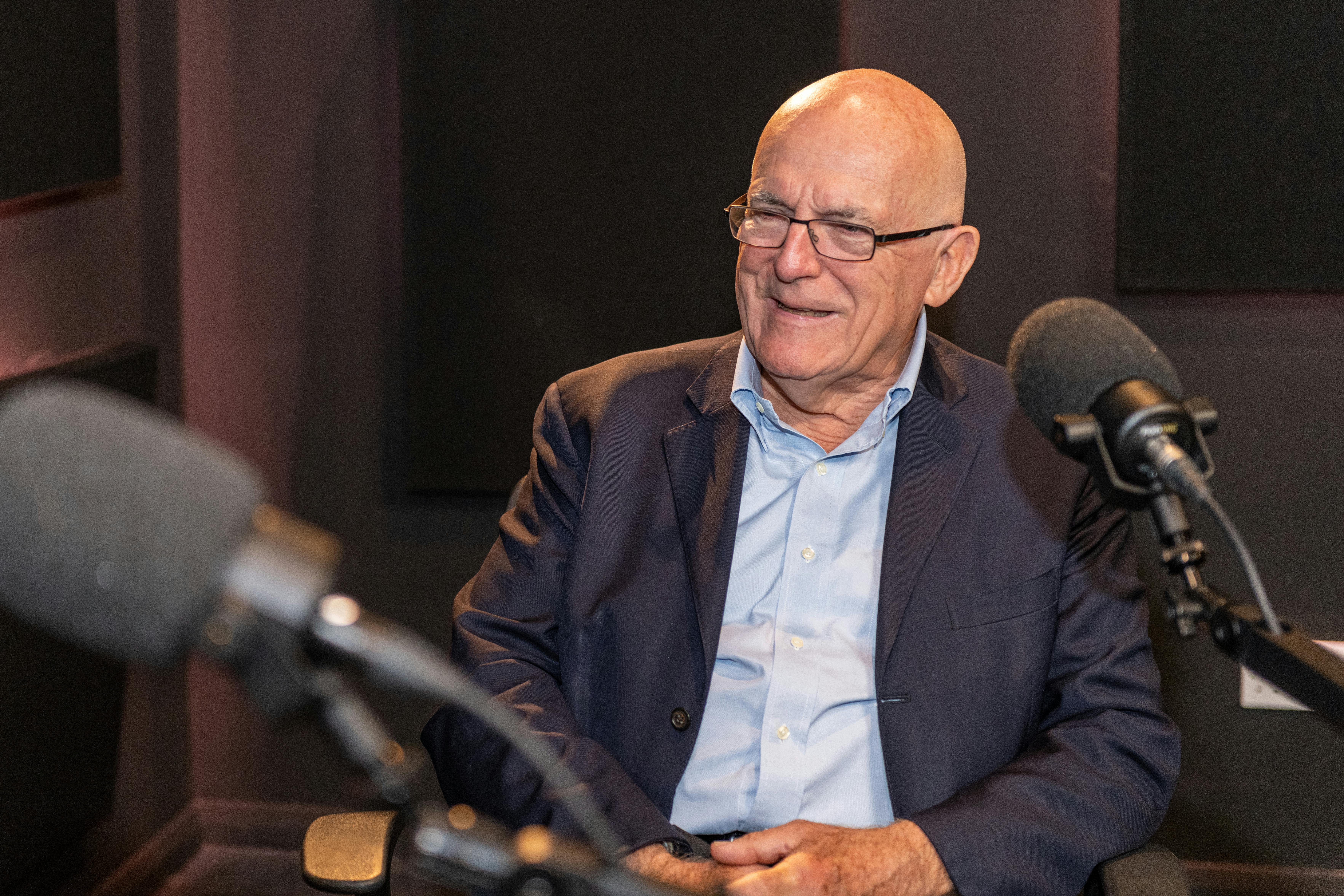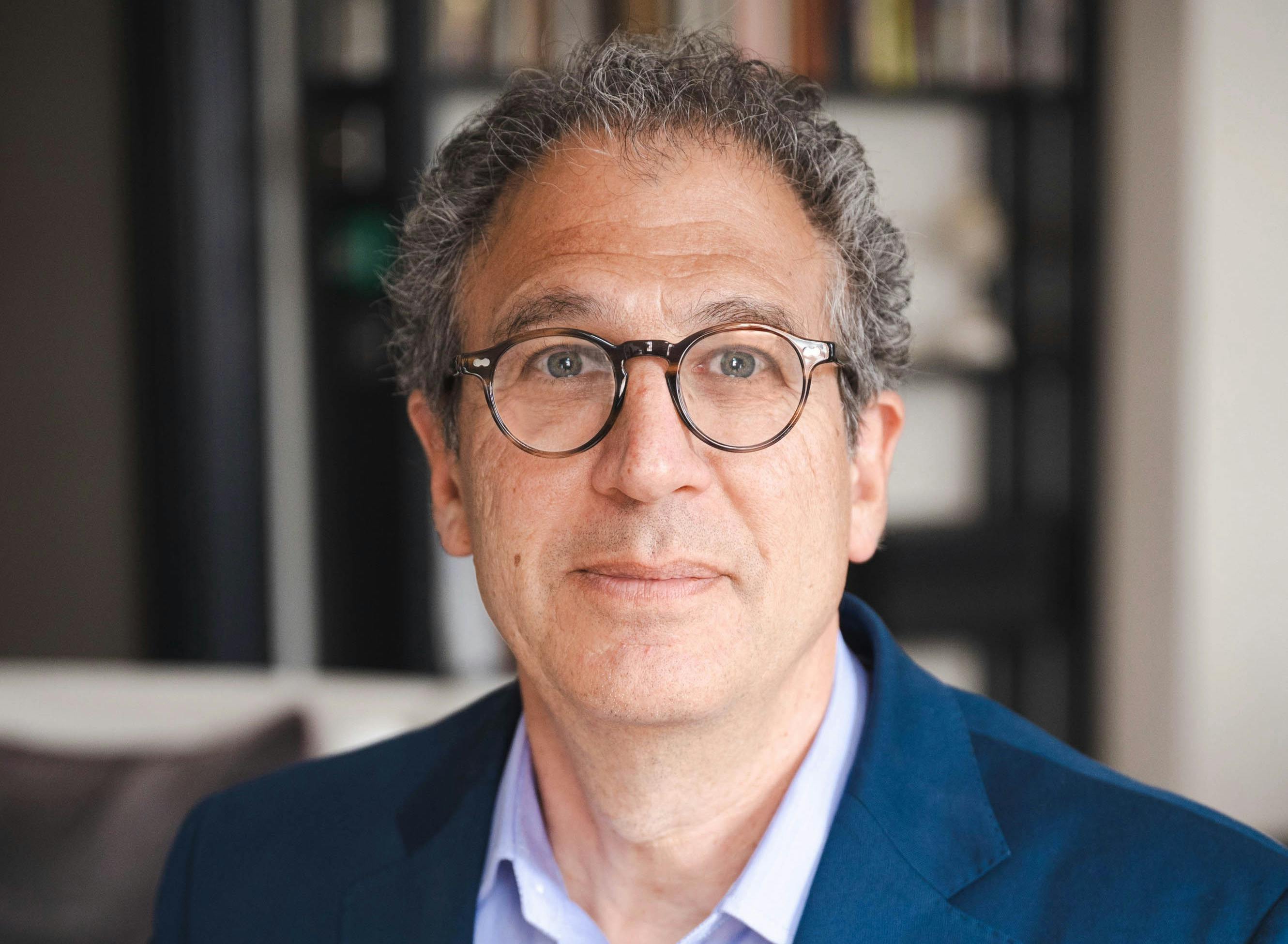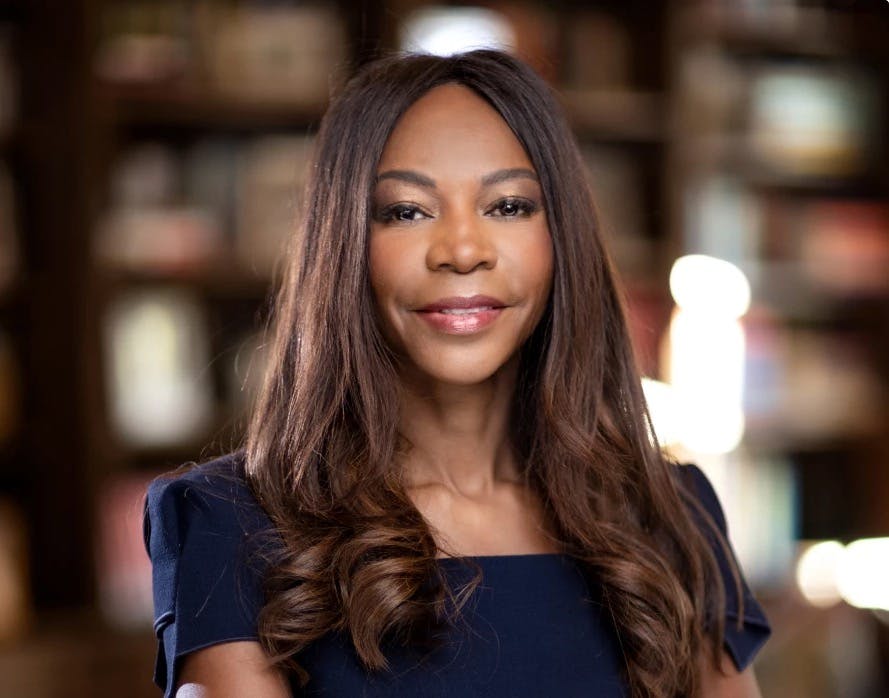
How to save the NHS - and why joining one of its Trusts’ boards could change your life | Sir Thomas Hughes-Hallett
Sir Tom shares his views on how NHS Trusts can become more commercial, the breadth of skills required by Trust boards, and why a mysterious discovery in his inside suit jacket pocket changed his life.
Sir Thomas Hughes-Hallett is the chair of Chelsea & Westminster [C&W] hospital, ‘Chair of Chairs’ of all NHS teaching hospitals, and the founder of Helpforce, a charity working to transform the health of the NHS via the power of volunteering. Philanthropist Sir Tom was previously chief executive of the cancer charity Marie Curie, whilst his early career saw him train as a barrister and set up investment bank Enskilda Securities.
Here we are privileged to hear Sir Tom’s views on how NHS Trusts can become more commercial, what skills are required for Trust boards (yours is almost certainly one of them), and why a mysterious discovery in his inside suit jacket pocket changed his life…
What type of talent do NHS boards need most?
Not what you think. I’m not a doctor, I’m an investment banker who has run a charity. Potential NHS board members need to be very committed to public service - but they don’t need a healthcare background.
Have belief that the skills you have will add value. The NHS needs help in so many areas - skilled marketers to help the public improve their own health; board members with good analytical skills; finance experts, techies, and - since I’m certain that there will be many more mergers in the NHS - M&A sleuths. Each board also needs a cynic: a really well grounded person with experience of internal audit and compliance, who can challenge enthusiastic boards - this is public money, lives are at stake, is this the right thing to do?
What’s the secret to a successful NHS Trust board?
Diversity. Healthcare is a business, whether we like it or not, and over the next 10 years the NHS - which is great at care - needs to balance its books: there won’t be more money. Boards need to be diverse - including with NEDs’ career backgrounds. The reason my board at C&W has worked so well is that I deliberately put together NEDs with varying skills - one is from the oil industry, one is a GP, my vice-chair is a turnaround specialist who’d transformed McCarthy & Stone and dealt with the winding up of Toys R Us; another is PR from the pharma industry - that huge range of skills enables the executive team to benefit from advice from other industries.
But there’s always room for improvement. At C&W, 43% of staff and patients are from ethnic minority groups; that’s not, yet, the case with our board. One of the reasons I like Nurole is because of the huge range and diversity of their members. Boards need to have the best directors, but they must also reflect the diversity of those it serves and employs.
Can volunteers save the NHS?
Despite the press, I think the NHS is still very strong - the idea for Helpforce wasn’t to save it, but to support the NHS. When I was at Marie Curie, I had 5000 staff and 10,000 volunteers. Then when I became chairman of C&W, I realised very quickly that the NHS had missed a big trick: here I had 5000 staff and 200 volunteers. Our staff were brilliant but exhausted by ever increasing demands from the public for healthcare services, with no more staff or money.
Now Helpforce has got 30,000 volunteers into NHS hospitals - I can’t quite believe it. Everyone from bikers delivering blood around the country, to volunteers helping with benefits advice, people helping people get back home quicker, recycling unnecessary equipment in the hospital, and end of life care volunteers so nobody dies alone. It’s all helping to save the NHS time and money. I’m trying to keep Helpforce as tiny as I can - two years ago, we had one member of staff, now it’s 16.
What can you get back from working on an NHS board?
I once talked to Maurice Saatchi as he’d offered to help with branding for Marie Curie, pro bono; I said, “that’s generous,” but he said it wasn’t entirely selfless, as supporting a charity like Marie Curie was a lot more exciting than selling washing powder, whilst requiring the same skills.
I feel the same: when I’ve been offered NEDs in the private sector over the last few years, I’ve never been tempted, because at an NHS or Helpforce board meeting, at the end we’ll have made decisions that will have directly helped the health of people in the area I live. If you’re a NED of a company that trades bananas, I’m just not sure it’s so exciting.
Helpforce is obviously encouraging NHS Trusts to think more laterally - how can they be more commercial, and raise their own funds to feed profits back into hospitals?
First, start running as leanly as possible. In the six years since I’ve been at C&W, we’ve always started the year saying ‘we can’t possibly save another £25 million this year…’ Every year, we do. And we are still growing the amount of care we provide.
The second thing we’re always looking at is other streams of income - at C&W we invested significantly in our own charity, and this year it will raise £10 million more than it did five years ago.
Private patient income can cross-subsidise the NHS - but you have to be very careful; it can conflict with the rest of the ethos of the hospital. Some hospitals have sent their senior staff off to China or the Gulf, to create commercial income. I’m cynical about that; I fear the performance of the hospital suffers as a result.
What can the NHS learn from best-in-class private healthcare companies in the UK and abroad?
We can learn a lot about procurement, and consistency of approach. The NHS struggles to convince its medical staff to all use the same piece of kit, or the same prosthetic limb whereas I know at [private healthcare company] HCA, for example, there’s no choice: the Elastoplast in an HCA clinic anywhere in the world will be exactly the same. Why not have the same in the NHS? The day I arrived at C&W, there were more than 20 different kinds of plastic glove in use in our hospital - why?!
What would you change about the NHS today?
I’d instil a fundamental understanding from the British public that we are extraordinarily fortunate. Yes we fund it as taxpayers, but appreciating it would make such a difference. NHS staff become exhausted and demoralised because of the constant hammering - not just the press, but also the public: sometimes you despair: what do we have to do to make people happy?
Next, I’d deal with the staffing crisis. We need more people to want to work in healthcare. That’s one reason why I started Helpforce - some hospitals are now recruiting volunteers into their permanent workforce.
Do you think the NHS should be politically neutral, like the Bank of England, rather than at the mercy of election-nervous politicians?
No - it’s rare that I think the powers that be are held back from making decisions because politicians still have the odd lever to pull. The NHS doesn’t feel nearly as political as it did in 2000 when I started at Marie Curie; I don’t see [NHS England CEO] Simon Stevens or [chair of NHS Improvements] Dido Harding being political animals - they’re committed to running politically neutral organisations. And I don’t feel I’m chairing an organisation that is subject to political interference.
How does Nurole help?
I’m a big fan, because it can access 25,000 high-quality members at the touch of a button; traditional headhunting doesn’t have that reach. Nurole is a disruptor. I encourage anyone who is interested in roles in public life to become a member. Many of their members might not have thought of working in NHS or public life before - but if they do, they’ll be enormously rewarded.
Let’s finish with a few quick-fire questions:
What’s the best professional advice you ever received?
If you’ve got a good idea, believe in it, and don’t give up.
What was your biggest break?
Putting my hand in the inside pocket of my jacket and finding - three months after it had been published - an advert for the chief executive of Marie Curie. I don’t know how it got there - but I rang up its current chief executive, and said, ‘I’m sure I’m not suitable, but..’ His response was, ‘well, I was an ambassador, and the last one was a general so it’s about time we had an investment banker.’ If I hadn’t done that, I’d still be in some ghastly job in the City.
Favourite book?
The RHS book on pruning is the most-thumbed book in my house. I adore my garden and i love my trees.
Favourite place to go on holiday?
Greece.
What do you do to have fun?
We have a lightbox in our kitchen saying, ‘have fun every day’ - I don’t believe in doing anything that’s not enjoyable, whether it’s chairing a hospital, or setting up Helpforce - if it’s not fun then it won’t succeed. Every organisation I’ve set up or run during the modest success I’ve enjoyed in life, I’ve promised every single person it’ll always be fun and they’ll never be bored. If you’re not having fun, then move on, whatever the salary or grandeur.
Favourite app?
Whatsapp - I look at pictures of my grandchildren every morning.
When does your alarm go off?
I sleep very well and don’t need an alarm clock; I wake up at 6:45 every day.
When did you last cry?
I cry all the time - normally at a soppy film, or at my children’s achievements.
Favourite quote?
If you don’t succeed, try try again.
Lucy Tobin is a senior City journalist and columnist at the Evening Standard. She tweets @lucytobin.






